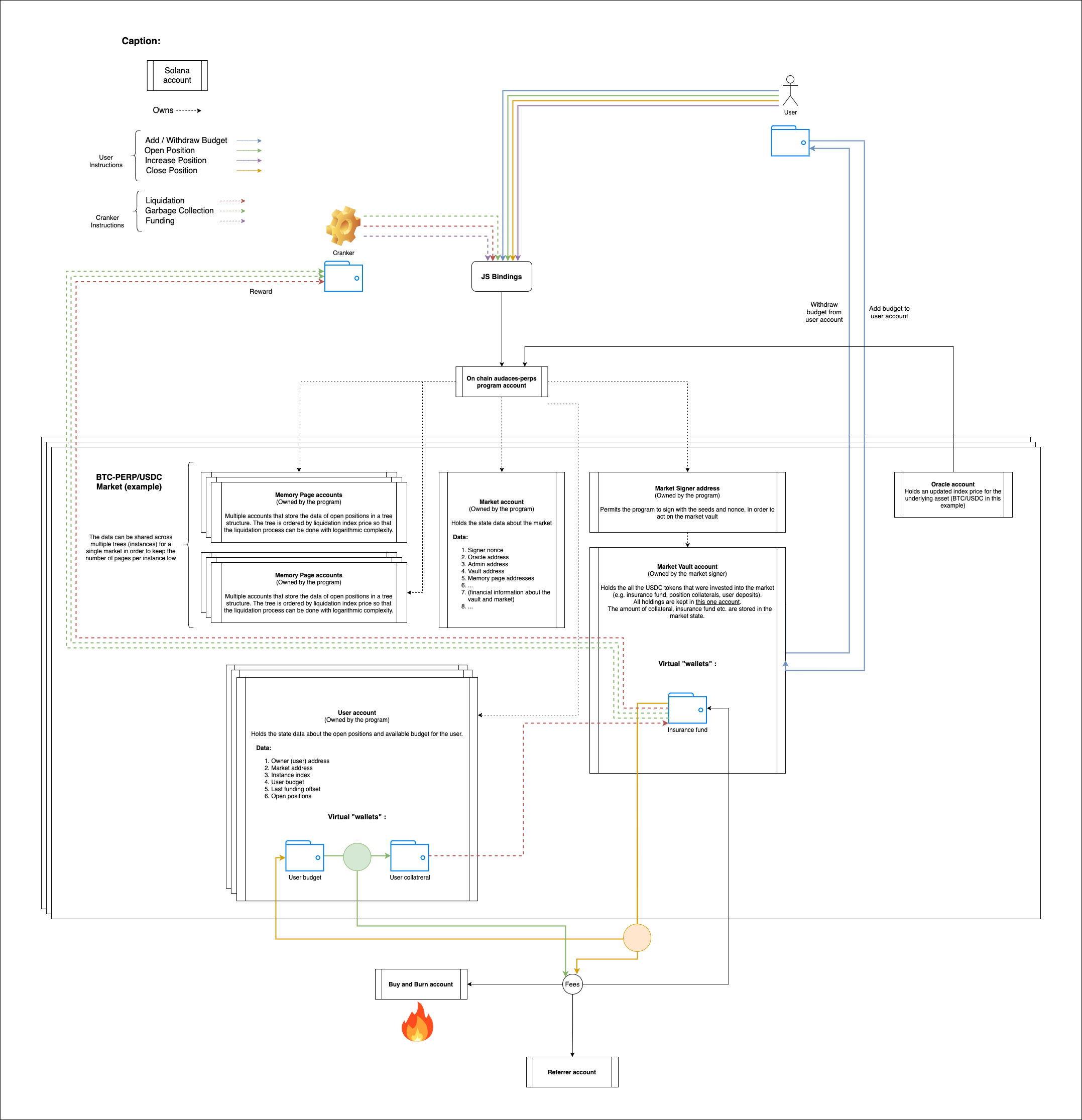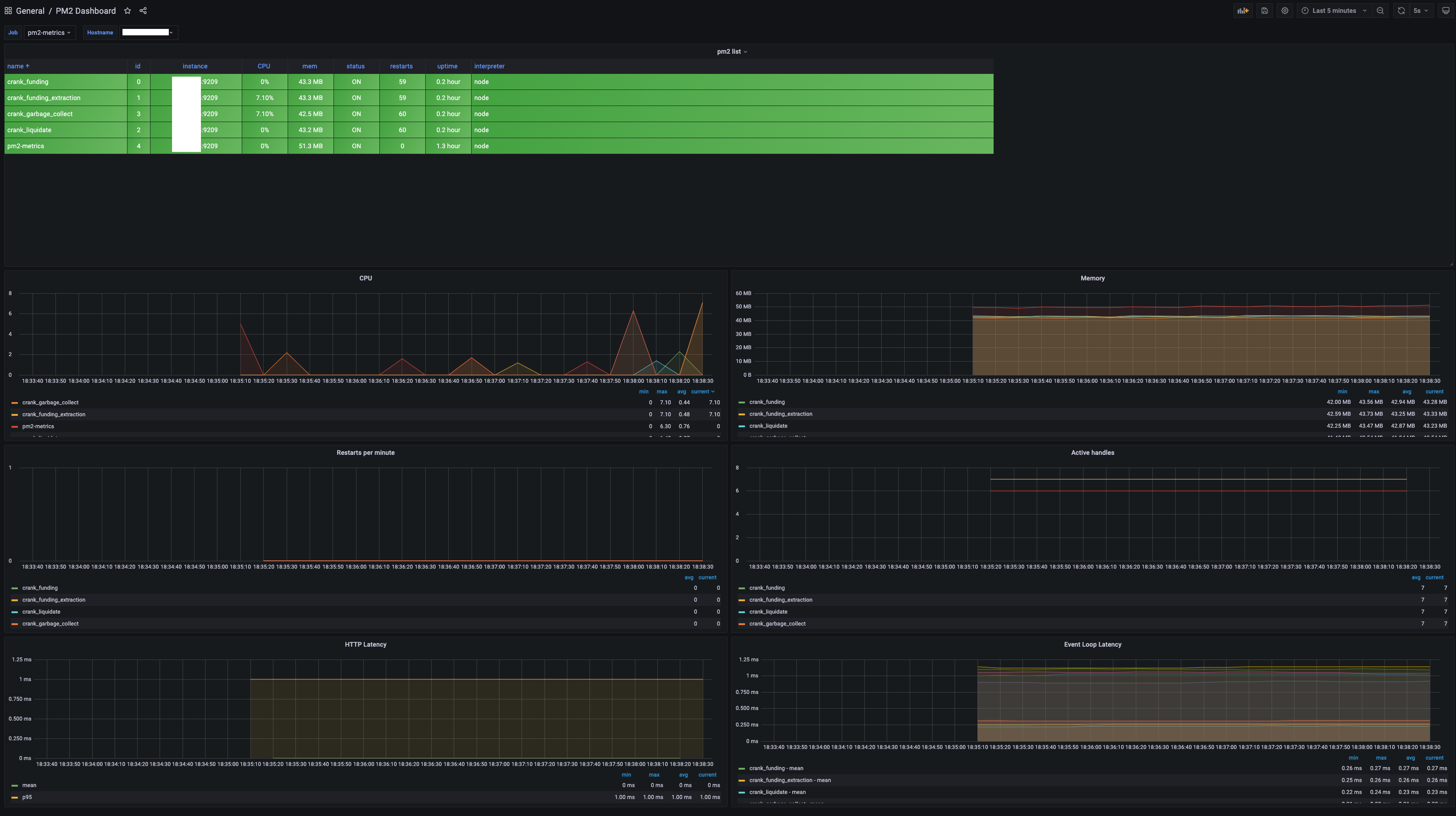Audaces Protocol
⚠️ Warning
Any content produced by Audaces Foundation, or developer resources that Audaces Foundation provides, are for educational and inspiration purposes only. Audaces does not encourage, induce or sanction the deployment of any such applications in violation of applicable laws or regulations.
Perpetuals built on Solana
White paper: https://arweave.net/MDXO3eeOjQdmkq_E94Ah2gTS_RuKtrm0ZvTexriOh4M
Markets:
- BTC/USDC:
475P8ZX3NrzyEMJSFHt9KCMjPpWBWGa6oNxkWcwww2BR
On-chain Program
The on chain Audances Perpetual program maintains the vAMM state as well as a compressed liquidation index-addressable record of all open positions. It manages the creation of user accounts, the opening, closing and modifying of positions. It implements a constant-time liquidation engine which allows for a complete liquidation cycle at each Solana slot.
Insurance fund protection
- Fallback insurance is multi sig locked
- Small effective insurance fund is owned by the program
vAMM State
- Seed Nonce for vAMM signer program account
- Oracle address
- Audaces signer address
- Insurance fund holdings
- Vec of ( leverage, (short_pt, long_pt), gc_hd_pt, Vec of (Pubkey, PageInfo) for position_books )
vAMM == MARKET
Cranker
Perpetual nodes secure the Audaces protocol by cranking transactions. Anyone can run a node and help secure the protocol. The cranking transactions are:
- Liquidations
- Funding rates
- Funding extraction
- Garbage collection
Cranking with Ansible
The repository contains an Ansible playbook to automate the entire set up of the server. In order to deploy the cranker, you will only need to change the hosts.yaml file. For example, let's say you want to deploy a cranker in two AWS zones: Dublin and Tokyo, the hosts.yaml file could look like
tokyo:
hosts:
tokyo_1:
ansible_host: ip_of_your_server
ansible_ssh_private_key_file: path_to_your_ssh_key_file
dublin:
hosts:
dublin_1:
ansible_host: ip_of_your_server
ansible_ssh_private_key_file: path_to_your_ssh_key_fileYou also need to setup the wallet with which you want to crank using the wallet.json file in the cranker folder. You can then deploy your node using Ansible by running the following commands
- For the first time set up of your server use:
ansible-playbook -i hosts.yaml setup.yaml
- To update your node
ansible-playbook -i hosts.yaml update.yaml
You can monitor your node using pm2-metrics and Grafana using a Prometheus datasource
Cranking locally
If you want to crank on your local machine and already have Rust installed you can simply run the following
cd cranker
cargo build --release
target/release/./perps-crank --url <rpc_endpoint> --market <market_address> --program-id <program_id> --fee-payer <path_to_your_wallet> <service>
Where <service> is in: funding, funding-extraction, liquidate and garbage-collect
To install Rust on your machine refer to https://rustup.rs/
One can also use the process manager PM2 to launch the crankers
yarn global add pm2
<!-- Or with NPM -->
npm install pm2 -g
Cranking incentives
| Cranker | Reward |
|---|---|
| Liquidate | 10% of the position's collateral |
| Garbage Collect | 0.1 USDC per freed slot |
| Funding | None |
| Funding Extraction | None |
JS Library
A JavaScript client library for interacting with the on-chain program. This library can be used for:
- Creating markets
- Trading on a market
- Fetching market data
- Cranking (Rust sample code is recommended
⚠️ )
To install it
npm i @audaces/perps
yarn add @audaces/perps
The JS Library documentation can be generated using
yarn doc

